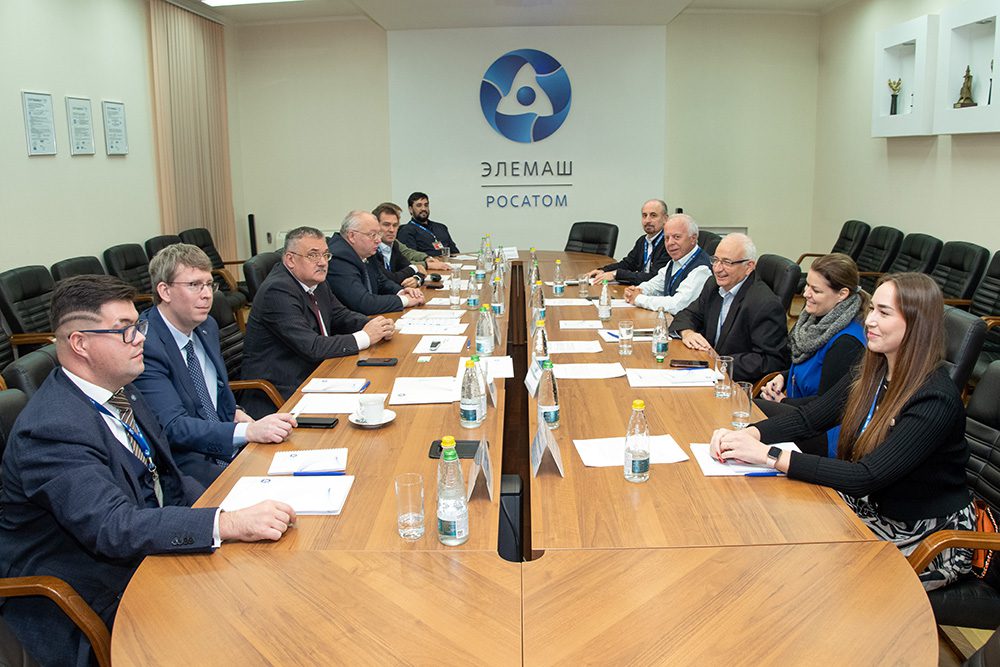(FSP) The government of Luiz Inácio Lula da Silva has resumed Brazilian interest in Russia’s nuclear energy sector, thus opening a new possibility of future friction with rich countries led by the United States, since the G7 has just disclosed a plan to try to break Moscow’s dominance in this market.
The subject was discussed during Russian Chancellor Sergei Lavrov’s visit to Brasilia, where he was received on Monday (17) by Lula and Chancellor Mauro Vieira, which was object of harsh criticism from the USA and Ukraine, a country invaded by Russia.
It was not the center of the talks, which revolved more around the war, in which Brazil wants to be a mediator, commercial opportunities, and the resumption of bilateral dialogue.
But the fact that it was on the agenda shows that Lula followed up on a move opened by Jair Bolsonaro (PL) in his controversial visit to Valdimir Putin in February 2022, a week before Russia invaded its neighbor.
As Folha revealed a little over a year ago, one of the priority issues for the Brazilian president was the question of the fuel to be used in the reactor of the country’s future nuclear propulsion submarine. Despite dominating the product cycle, Brazil does not produce it with the necessary certification – and the U.S. has closed the door on the issue.
The prototype reactor of the vessel under development by the Navy, which should go to sea only in the next decade, has been undergoing tests since 2021, but lacks access to fuel. The process needs to be vetted by the International Atomic Energy Agency, and the war seemed to have buried the talks.
This is not what happened, even if only superficially – more detailed talks about this in the Navy and in Itamaraty are state secrets. Besides the submarine, there is the issue of resuming the works of Angra 3, paralyzed since 2015 due to the outbreak of corruption allegations in Eletronuclear, the state-owned company that takes care of the sector.
Last year, Bolsonaro extended the deadline for technical reassessments of the project, which resumed some civil works at the end of last year. The plant, the big sister of Angra 1 and 2, started being built in the 1980s, in action interrupted and then restarted by Lula in 2009.
Also on Bolsonaro’s visit the subject was touched, and Lula wants to maintain contact with Rosatom, the Russian state-owned atomic company that is the largest player in the market in the world that has already placed itself in the dispute for Angra 3 against Westinghouse (USA), CNNC (China) and EDF (France).
In addition to operating 11 units in Russia and Europe’s largest plant in occupied Ukraine, Zaporijia, Rosatom is building 35 of the 58 new reactors in the world today. About one-fifth of the 435 active reactors on the planet are its own or of its design, and the company of nearly 270,000 employees controls 14 percent of the fuel market, 28 percent of the enrichment market, and 75 percent of the associated technologies market.
Turkey, a NATO (Western military alliance) country, has invited Putin to inaugurate its first nuclear power plant, built by Rosatom, next week. Hungary, also a member of NATO, has a contracted plant, and even the United States depends on the company: 16 percent of the nuclear fuel it consumes comes from it.
Not unsurprisingly, nuclear power never entered the radar of the sanctions that closed the natural gas and oil market to Russia in Europe. Indeed, ROSATOM has increased its turnover by 15 percent by 2022. That is until now.
This week, at a meeting of the G7 (the club of developed economies) in the Japanese city of Sapporo, the US, UK, France, Canada and Japan decided to implement an agreement to try to break Russia’s domination of the market -worldwide, nuclear power plants account for 10% of energy production.
“We must defeat Putin and make sure that neither he nor anyone like him can think of holding the world to ransom through his energy again,” said the British sector secretary, Grant Shapps. The agreement provides for “securing the supply of uranium fuel through shared supply chains to isolate Russia.
The nuclear issue is far more complex to deal with than oil and gas, as the delay for the West to attack this flank shows. But just as Moscow has opened new markets for its oil, such as a 14-fold increase in sales to India by 2022, it seems logical that it would want to increase partnerships in countries like Brazil before the rich countries’ plan takes effect.
In the meetings in Brasilia, another energy theme was diesel, a product that Brazil imports for its extensive road transport network. Since Lula took office, there has been a spike in the purchase of fuel from Russia.
According to the Argus consulting company, in 2002 Moscow had only 1% of the Brazilian diesel market, dominated by the USA, with 57.2%. In the first quarter of this year, however, the Russians rose to 13.2% and the Americans fell to 33.1% of imports.
